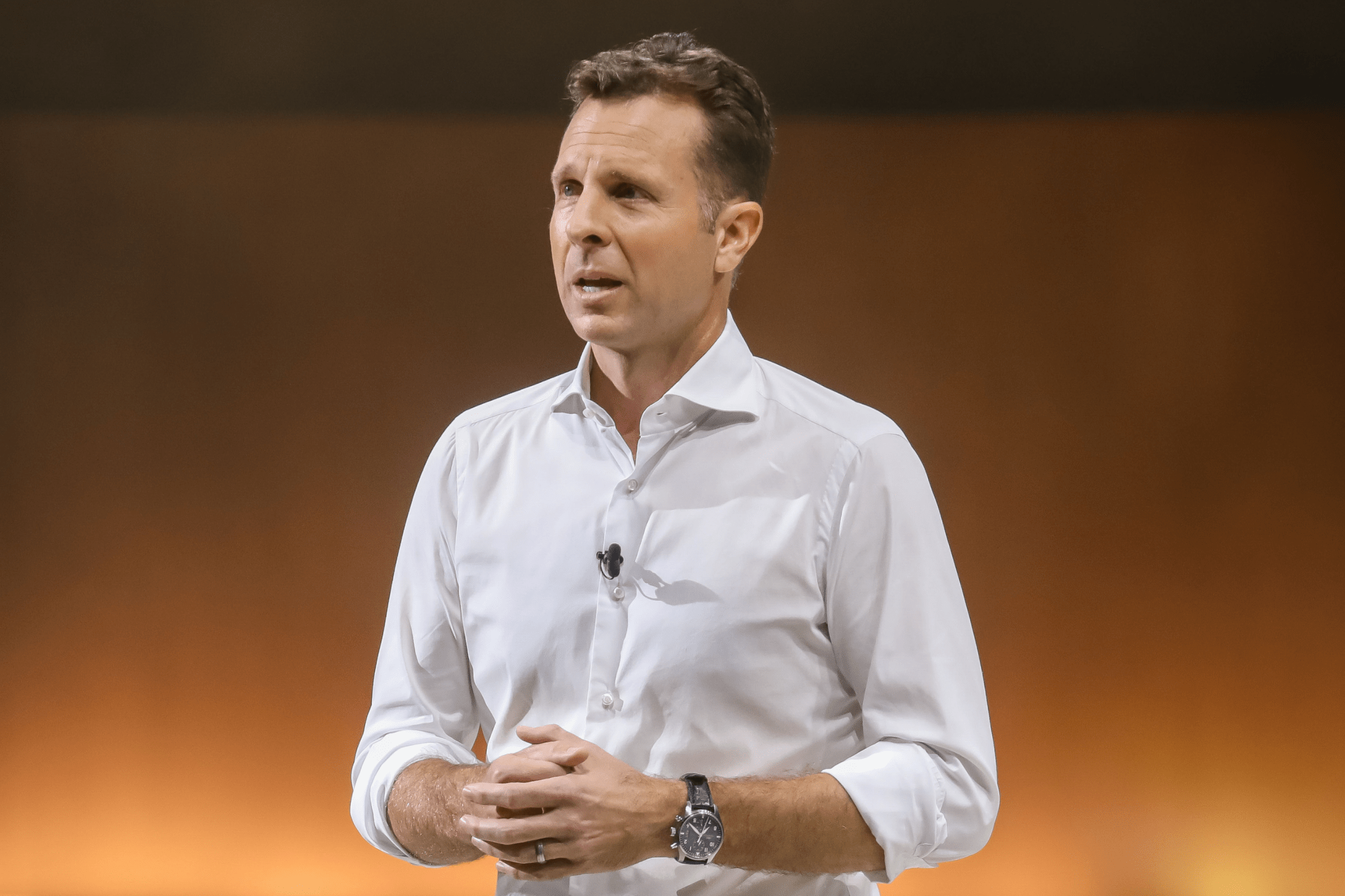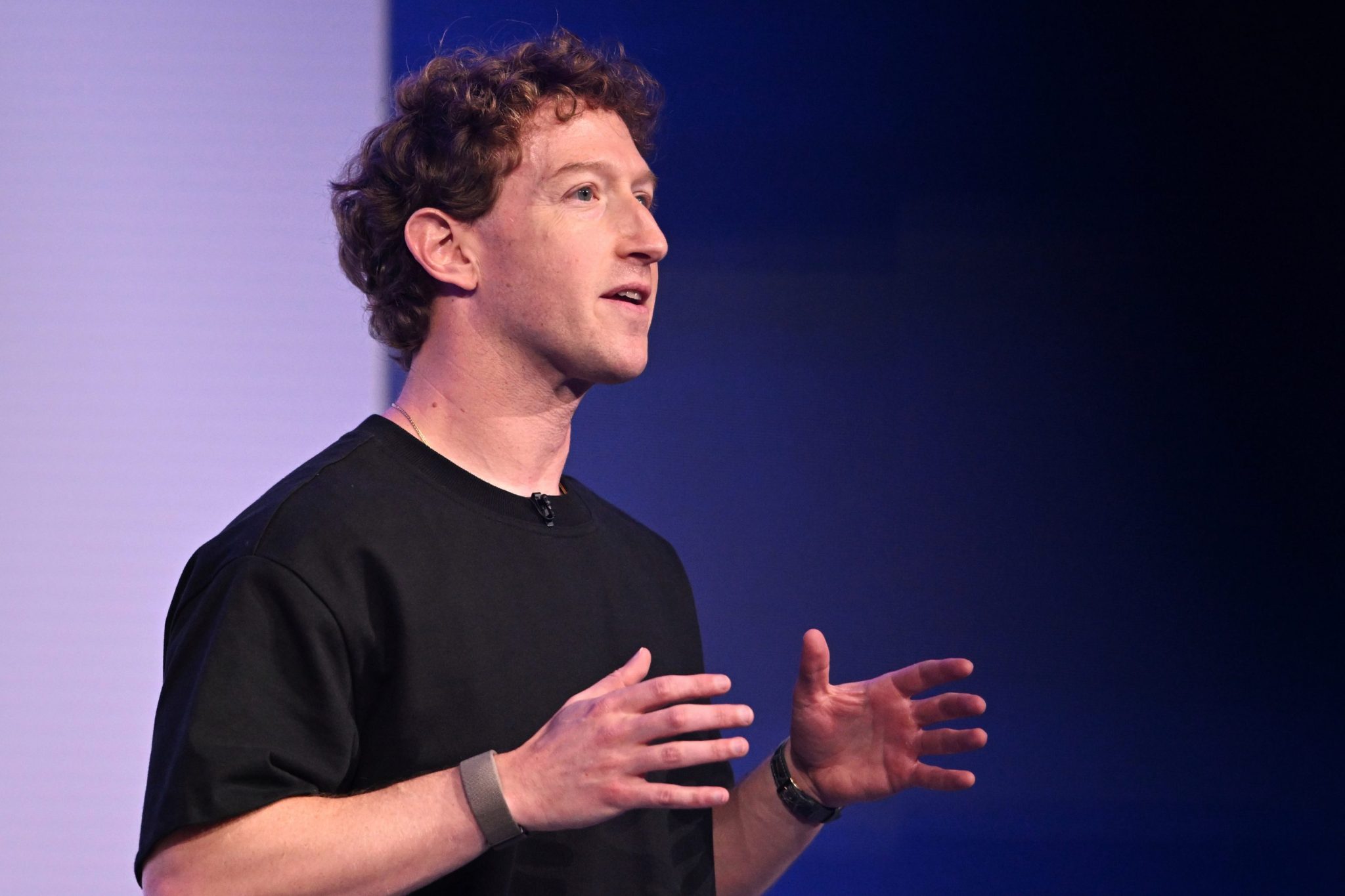
Shark Tank is known for turning scrappy ideas into multimillion-dollar household brands, such as Scrub Daddy, Bombas, and BeatBox.
But one of the show’s biggest misses came when a startup called Doorbot walked onto the set. The video doorbell walked away without an investment, but a few years later, under a new name—Ring—it became a billion-dollar success story found on the doorsteps across the country.
But according to its founder, Jamie Siminoff, the company’s rise wasn’t the product of luck or a single breakthrough—it was built on relentless work.
“‘Work-life balance’ was a phrase and a goal, not a reality,” wrote Siminoff in his new book out today: Ding Dong: How Ring Went from Shark Tank Reject to Everyone’s Front Door.
Speaking with Fortune ahead of the book launch, the now 49-year-old said in his early days as an entrepreneur, he spent nearly every waking moment working—or worrying—about the company. His biggest sacrifice? A good night’s rest.
“I just didn’t sleep. I mean as crazy as it is, I really didn’t sleep more than a few hours a night, and I couldn’t, and even if I wanted to sleep, I couldn’t sleep,” Siminoff told Fortune.
And while Siminoff admitted it was “not good” and may have even affected his decision-making—it’s the reality many founders must deal with if they are committed to staying afloat.
“I wouldn’t recommend it to anyone, but I do think you do it and you just get through it,” he added.
Even as Ring began to take off, the pace only accelerated. By 2017, when Ring was generating millions in sales and valued at over $1 billion, Siminoff had logged nearly 200 travel days in just 10 months, constantly bouncing between time zones and investor meetings. He would make an exception, though, to seek out family balance. He even took his five-year-old son Ollie on the road with him—including a trip to China to visit a factory.
Starting the grind from the bottom—all the way up to multimillionaire
While Siminoff’s all-in approach at Ring might sound like an unsustainable sprint, that work ethic has been part of him since the beginning.
Growing up in New Jersey, he spent his summers and weekends taking on odd jobs—painting houses, bellhopping at a hotel, and even shoveling horse stalls from neighbors’ barns on his way to school: “I was always hustling,” he said in his book.
“I’m a hustler and a grinder, and I just don’t stop,” Siminoff told Fortune. “I think I learned as a kid that if you want money, you work and you just keep working. You keep doing it, you keep going.”
As a student at Babson University, he kept that same hustle alive. He and a friend plastered posters around campus advertising their services:
“For $10 an hour we would do anything, Taskrabbit before Taskrabbit,” he wrote. “When the job was particularly unpleasant, we’d find local high schoolers to take on the job for $8 an hour and pocket the difference.
That entrepreneurship streak eventually led to Doorbot—which he founded in 2012 in his garage with a team of engineers. In 2018, Amazon acquired the company for $1.15 billion.
Siminoff joined Amazon—back at the helm as Ring’s leader—earlier this year.
Grind over glamour
From a bird’s eye view, it’s easy to look at Ring—and its ubiquity across neighborhoods—and feel inspired to chase entrepreneurship.
But Siminoff warns against mistaking success for all-encompassing glamour.
“Not every day is glamorous,” he told Fortune. “I think that’s the problem with entrepreneurship today… it’s become now so normalized that I think it has a glamor to it, and the reality is, it’s hard.”
Even as Ring grew into a company generating millions, Siminoff said there were countless moments when it nearly all fell apart. What kept him going wasn’t the money—it was the mission to keep neighborhoods safer.
“If you think you’re doing something that’s in some way benefiting people, society, the environment, whatever—it’s a lot easier to wake up at 6 a.m. and go do it, because at least even failure is that you try to do something good.”
Credit: Source link












